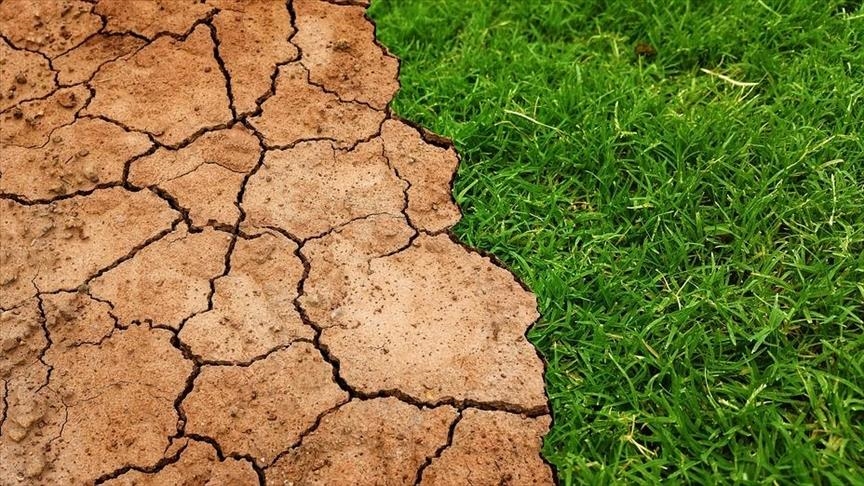Most of the Middle East countries suffer from unequal conditions due to common water resources amid all this, in a way that the development of their economic infrastructures depends on the ethnical – racial policies of upstream countries. Moreover, climate changes, populations growth, urbanization growth, development of agricultural activities, spark the demand for water in the region. Such a situation creates a driving force to operationalize the strategy of interventionists that will directly leave profound changes on the national sovereignty of countries as poverty and living hardships expand.
Countries of Euphrates and Tigris area are suffering from unstable security status in the Middle East; deep-rooted border disputes, cultural – ethnical – religious common links with the other side of borders, common water, mine, hydrocarbons resources are considered as threats for political – social security that target identity components in the Middle East which are strongly sensitive towards them. In line with this, as we witnessed in the Syrian internal war, water shortage caused widespread immigration towards cities and towns and consequently led to rising national violence, and centrifugal forces seized the opportunity to fan dissatisfaction and to reach their separatist objectives. However, it did not lead to anything but extensive damages. Although the situation has been controlled in these regions to a large extent but it seems that the unrests and tensions have paved the ground for continuation of disunity among ethnics with different ideologies and if there is not a principled and precise program, we will witness again a new round of internal wars and expansion of terrorism stronger than before.
The issue can be extremely dangerous and uncontrollable for Iraq because the country is under severe pressure due to its geopolitical situation. The restriction has caused the infringement to peripheral territories at certain junctions to escape geopolitical contraction. Now, with the policies adopted by Turkey on water potentials, we should witness negative consequences of the strategy in very near future. However, because of population growth as well as increasing presence of political and war-stricken refugees and migrants, Turkey is forced to optimize its water resources to make its economy dynamic. That’s why construction of dams, and or changing the routes of derivations of Euphrates and Tigris to prevent the reduction of areas under cultivation of agricultural crops, promotion of urban development, and adjustment of inequalities on the margins of immigrant cities are assessable in line with this. In addition, Kurds centrifugal inclinations and also other regional dissidents are among issues that Ankara tries to supervise them through water as a geopolitical instrument.
Anyway, Iraq is in a special situation that any up and down in the water level of rivers, will ignite the local struggles into a national protest and will spark silent publicity for a divergence in the light of ethnical and religious disputes and call for terrorist operations and ultimately territorial separation. That’s why Turkey’s water geopolitical policies as an upstream country are of great importance for Iraq’s security and its surrounding countries. Therefore, it is expected that trans-regional powers interfere in the governing as well as party system of Turkey and make it in coordination with their own policies in order to influence and follow up their mega scale objectives in Iraq, Syria and even Iran. Thus, spontaneous separatist movements of the region will gradually make increasing threats against Iran, Iraq, Syria, Kuwait and Saudi Arabia. In such a situation, borders will become strongly vulnerable, and more than being preventive to invasions and tensions, they will be facilitators of ethnical nationalistic links at two sides of border areas and develop the social vacuums as well as tribal violence at large scale.
On the other side, in the light of the shortage of water, emigration to the vicinities of major cities will prepare ample ground for increasing deprivations in addition to social and economic disorders, and inclinations to illegal trans-border and regional activities such as drug, goods and human trafficking will have an important share in continuation of instability and chaos. Although the problems do not seem to create required essential measure to shake the national structures but will directly face the survival of human societies to various challenges, the negative consequences of which are undeniable to economic and social assets. From this point of view, the border areas of the regional countries of the Middle East are very notable.
It is certain that being indifference towards the problems of water tension in the Middle East which is intensified with climate changes and increasing greenhouse gas emissions, will further change the regional geopolitical order with the growth of environmental terrorism (various targeted attacks to water systems,…..) and its interrelation with trans-national terrorism. Moreover, the people who were made to leave their towns and villages under the water shortage pressure and drought (particularly the youth) because of long term psychological trauma are considered as suitable recruited cases to join terrorist organizations in order to expand and promote violent measures.
The role of water in staging and continuing wars and tensions in the Middle East is undeniable. It seems unlikely that in near future, the water problem as a focal point of crisis and clash in the region will be wiped out. Thus, one can not expect a promising perspective of the state of stability and security in the Middle East, until and unless the regional countries agree on some issues and more constructive as well as positive strategic partnership will be created afterwards and mutual confidence is established. However, great investments should be made in various fields to free the region from critical status.










0 Comments